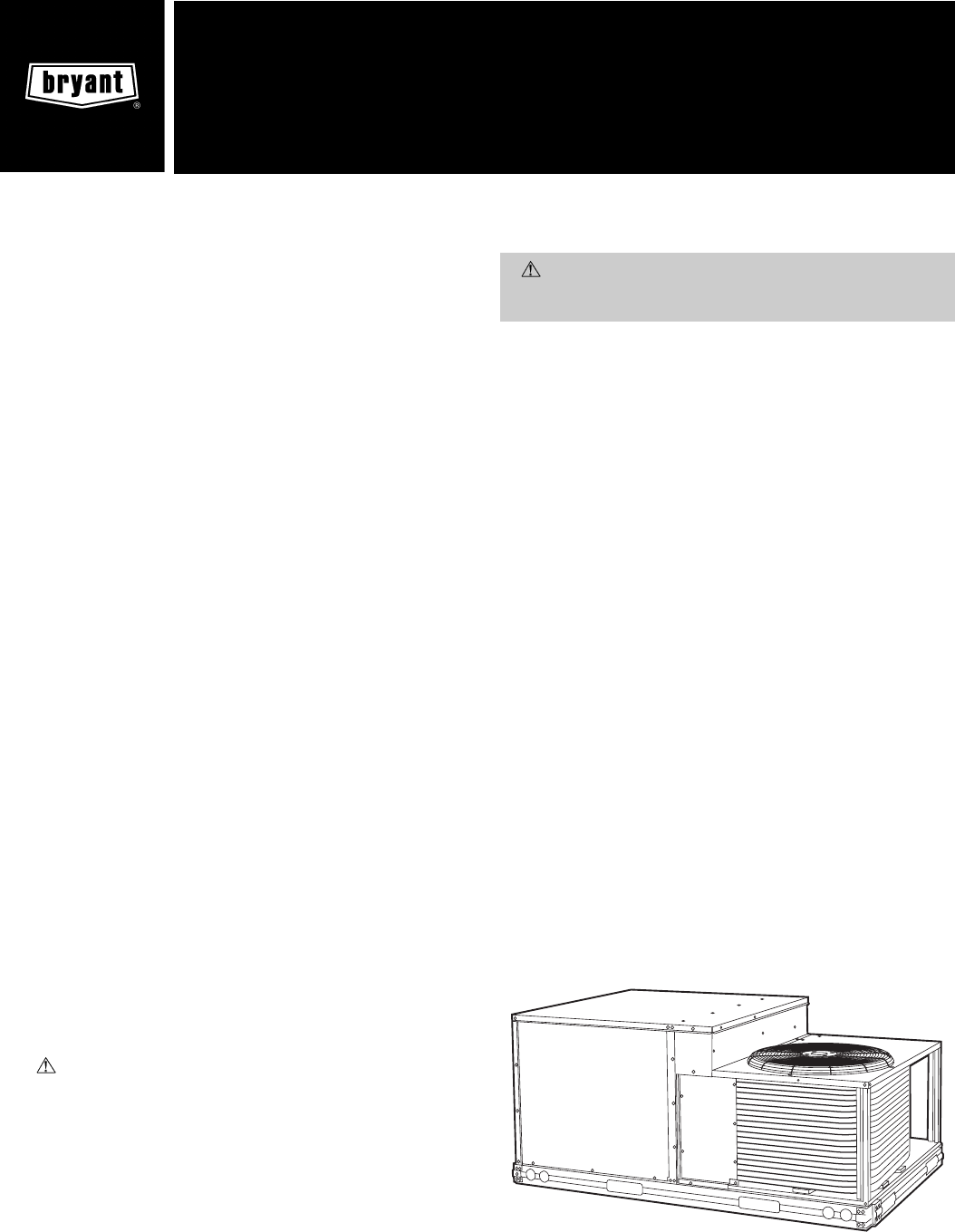
IMPORTANT — READ BEFORE INSTALLING
1. Read and become familiar with these installation in-
structions before installing this unit (see Fig. 1).
2. Be sure the installation conforms to all applicable local
and national codes.
3. These instructions contain important information for the
proper maintenance and repair of this equipment. Re-
tain these instructions for future use.
CONTENTS
Page
SAFETY CONSIDERATIONS ................... 1
INSTALLATION ...........................1-16
I. Locate the Unit ....................... 3
II. Unit Duct Connections .................. 3
III. Rig and Place Unit ..................... 3
IV. Field Connections ..................... 6
PRE-START-UP ............................17
START-UP ..............................17-28
I. Heating Section Start-Up and Adjustments ....17
II. Cooling Section Start-Up and Adjustments ....18
III. Indoor Airflow and Airflow Adjustments ......19
CARE AND MAINTENANCE ...................28
I. Air Filter ............................28
SERVICE ...............................28-31
I. Cleaning ............................28
II. Lubrication ..........................29
III. Condenser Fan Adjustment ...............29
IV. Refrigerant Charge .....................30
V. Replacement Parts .....................30
TROUBLESHOOTING ......................32-35
START-UP CHECKLIST .....................CL-1
SAFETY CONSIDERATIONS
Recognize safety information. This is the safety-alert sym-
bol ( ). When you see this symbol on the unit and in in-
structions or manuals, be alert to the potential for personal
injury.
Understand the signal words — DANGER, WARNING, and
CAUTION. These words are used with the safety-alert sym-
bol. Danger identifies the most serious hazards which will
result in severe personal injury or death. Warning indicates
a condition that could result in personal injury. Caution is
used to identify unsafe practices which would result in minor
personal injury or product and property damage.
WARNING:
Before performing service or mainte-
nance operations on unit, turn off main power switch
to unit. Electrical shock could cause personal injury.
1. The power supply (volts, phase, and hertz) must corre-
spond to that specified on unit rating plate.
2. The electrical supply provided by the utility must be suf-
ficient to handle load imposed by this unit.
3. Refer to Locate the Unit section on page 3 and Fig. 2 for
locations of electrical inlets, condensate drain, duct con-
nections and required clearances before setting unit in
place.
4. This installation must conform with local building codes
and with NEC (National Electrical Code) or NFPA
(National Fire Protection Association) 54 TIA-54-84-1.
Refer to Provincial and local plumbing or wastewater
codes and other applicable local codes.
5. Approved for outdoor installation on wood flooring or on
class A, B, or C roof covering materials.
INSTALLATION
Unit is shipped in the vertical airflow configuration (see
Fig. 1). To convert to horizontal discharge, remove horizontal
duct opening covers. Using the same screws, install covers
with insulation-side down (facing outside) over vertical duct
openings on the unit. Seals around duct openings must be
tight.
All units can be connected into existing duct systems that are
properly sized and designed to handle an airflow of 300 to
500 cfm per each 12,000 Btuh of rated cooling capacity.
NOTE: When installing any accessory item, see the manu-
facturer’s installation instructions packaged with the acces-
sory. A qualified installer or agency must use only factory-
authorized kits or accessories when modifying this unit.
Fig.1—Typical Unit
installation, start-up and
service instructions
SINGLE PACKAGE ROOFTOP
ELECTRIC HEATING/ELECTRIC COOLING UNITS
558D
Sizes 036-072
3to6Tons
Cancels: II 558D-36-4 II 558D-36-5
2/1/99
